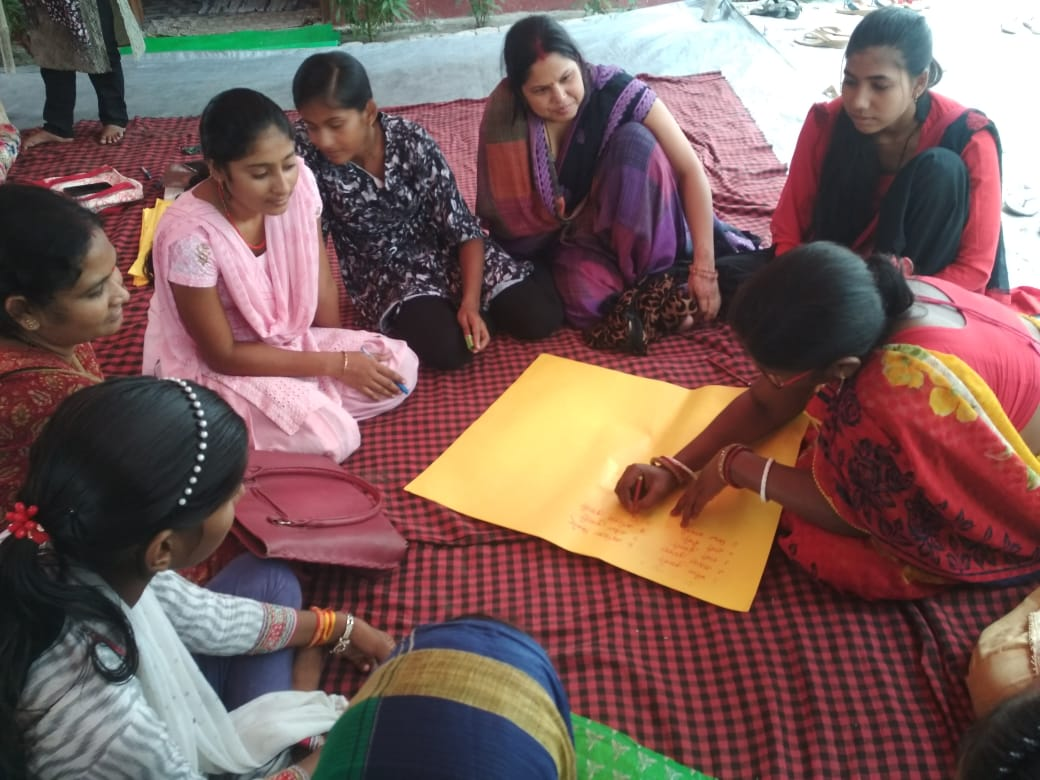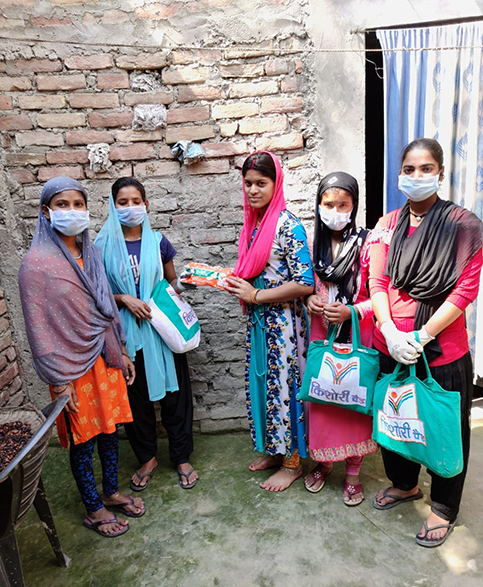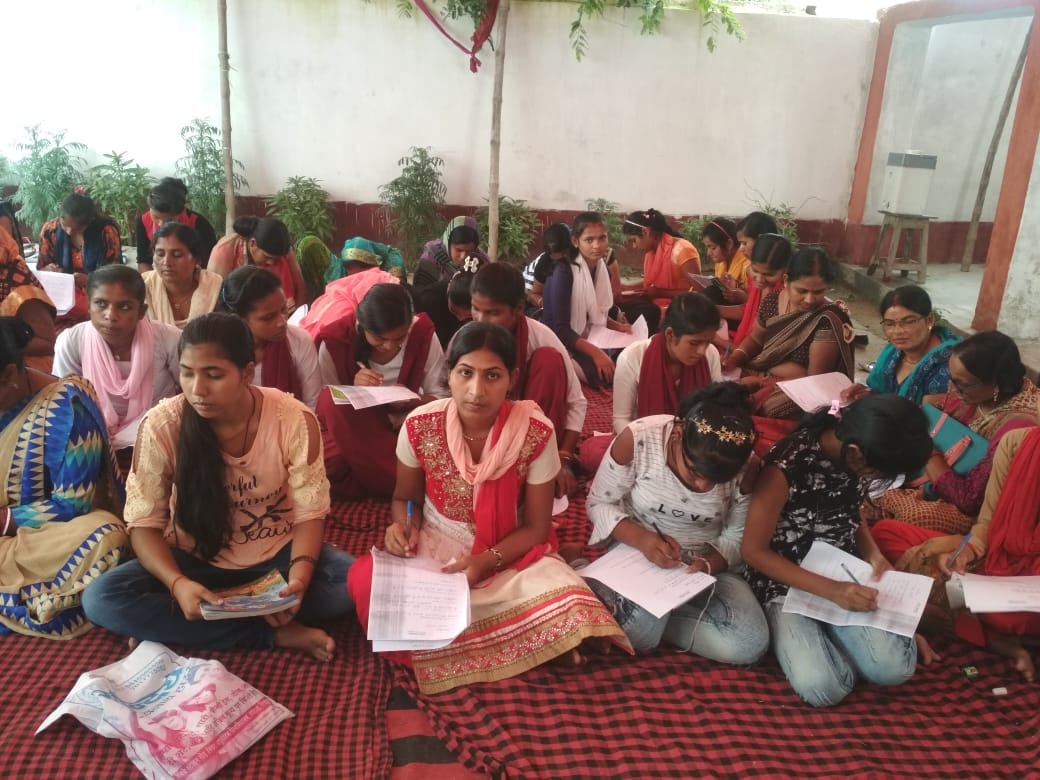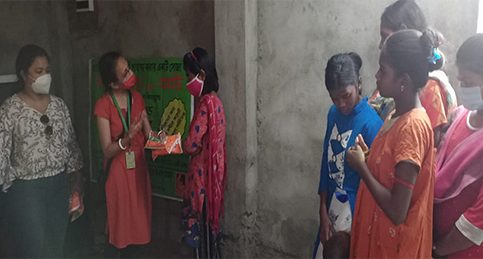
The foundation has, since the beginning, underscored the importance of raising awareness among the girls and women about menstrual health, women reproductive system, hygiene and various other related issues. With this aim, the foundation has designed a two-day workshop module which is conducted regularly through our expert women trainers.
This Workshop is an activity based, interactive training program where around 35 to 40 adolescent girls and your women are invited from morning till evening for two days (generally during weekend) and the program is conducted through the help of discussion, question and answers, charts, drawing and other materials, communication media like videos and storytelling, and the participants are also engaged and involved through various tasks and activities. During the workshop, the foundation also takes care of food and other requirements of the participants. This further enhances the utility of the program and motivates the participants as most of them are from disadvantaged background and often have to attend the program at an opportunity cost.

An important component of improving menstrual health and hygiene practices is to raise the awareness and knowledge about importance of these measures among rural women and girls. It is not uncommon to found that in many cases, despite having resources and means, women and girls are not serious and are hardly concerned about the importance of proper menstrual hygiene practices. One of the important reasons behind this appears to be the prevailing social and behavioural norms about not discussing such issues in public or in groups (even groups of women). Sex, menstrual process, reproductive systems and all related topics have been thought taboo in Indian social setting, and such thinking is very much prevalent in all strata of society. Distinction of rural-urban, poor-rich, upper-lower castes etc. do not make much of a difference. However, different studies and experience of people working in this field has also shown that a distinction should be made on the basis of age. Thus, young girls are much more receptive and willing to learn about and understand the importance of menstrual hygiene and thus use sanitary pad during their cycles. On the other hand, it has been found that older and mature women are often not very receptive to such ideas and are unwilling or are unable to appreciate the issue of menstrual hygiene. This has also been our experience working on the ground in rural areas of north Bihar and Jharkhand. Such low level of awareness and reluctance to learn and change is also due to ignorance, superstition and hearsay, rigid and backward social norms, behaviour and practices, and attitudes and many other factors.
Therefore, making women and girls aware of health and disease hazards of poor menstrual hygiene practices is equally, if not more important than ensuring availability and provision of sanitary pads. Our two-day interactive and activity-based workshop has been designed and being executed precisely to address the issues mentioned above.
In addition, as a novel approach, these awareness activities have been made an integral part of sanitary pad manufacturing and distribution activity of the foundation. A conscious choice of using labour intensive technology for manufacturing sanitary pads and employing women in these units for manufacturing has therefore been made. This has enabled us to integrate the larger issues of raising awareness and making a small dent on social-behavioural problem by exposing women to the issue of menstrual hygiene and health while they are themselves manufacturing pads, and also by encouraging them to feel empowered and providing them an environment of work place where they can discuss and learn about such issue while making sanitary pads themselves.


Kishoree Foundation © 2019, All Rights Reserved.